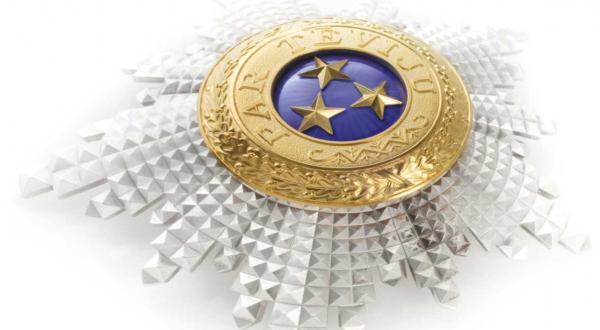Feel the Beating Heart of World Politics: Assistant Professor Andžāns on his Experience in Washington
Publications on security and defence policy in renowned European scientific journals, guest lectures and in-depth discussions at universities and think tanks, and a well-established, global international relations network – these are the benefits that Māris Andžāns, Assistant Professor at Rīga Stradiņš University (RSU), brought home from Washington, DC. This experience was made possible thanks to the Fulbright Scholar Program for researchers granted by the US government.

Having returned to Riga shortly before the pandemic started, Māris is still full of inspiration. On a day-to-day basis, he worked together with the sharpest minds at Johns Hopkins University School of Advanced International Studies. In his free time, he not only took part in discussions at different universities and think tanks, but also attended US presidential candidate rallies thus gaining a deeper insight into American political culture.
The five months he spent in Washington were very rewarding and productive: all in all, he wrote five publications on topics such as Russian securitisation in Latvia, Latvian defence policy, the willingness to defend one's country, and the management of external crises.
Three of these articles are soon to be published in European scientific journals, which will be a good contribution to the field of social studies at RSU.
At the epicentre of foreign policy research
Johns Hopkins University is currently ranked 24th in the QS World University Rankings. ‘The rankings are topped by universities that make large investments in research. The institute in Washington, DC had a very beneficial environment for research with all the necessary resources and highly qualified and dedicated colleagues from all over the world,’ says Māris.
Māris’ daily activities in the USA included reading theoretical literature and collecting empirical data, as well as visiting public authorities, foreign policy makers and commentators. He visited the US Congress on several occasion and met with researchers from different universities and think tanks. ‘It's easy to get carried away in Washington – there are so many events every day dedicated to almost any region of the world. I had to make sure that I didn’t neglect my work as a visiting scholar,’ jokes Māris. At least once a month, the research group met to discuss publications and share the latest knowledge and research approaches.
Māris Andžāns at Johns Hopkins University School of Advanced International Studies as a visiting Fulbright Scholar. Photo: Sofia Jern
According to Māris, life in Washington is very different from other US cities because of the sheer number of politicians, officials, academics, lobbyists, international organisations, and businesses. ‘If one wishes to examine international relations closely, then this is the right place to be. Of course, Brussels, Berlin, London, Beijing, and other cities of the world are also relevant, but Washington is still the main melting pot of people and ideas. Sometimes, it might even be easier to meet our political leaders here than in the Baltic States,’ says Māris. As concerns the Baltic region, foreign policy researchers have a much bigger interest in studying relations with China at the moment instead of focusing on Russia. ‘China presents a challenge for many states, including the USA. China's growth and the global spread of its power – these are the issues that are currently in focus around the world,’ notes Māris. He is still interested in studying international security issues, which, of course, cannot be seen in isolation from political and economic developments in the world, including China's actions on the global political stage.
Excelling at niche programmes
Having returned from this epicentre of international relations, Māris is pleased to conclude that the course pursued by his own alma mater is in line with the strategic vision of the most prestigious universities in the USA.
‘RSU is currently investing heavily in science, involving doctoral students in research, promoting publications in prestigious scientific journals, and assisting researchers in preparing strong research applications in a structured way. RSU has also established a motivational system to increase researchers' eagerness to work,’
explains the Assistant Professor. He stresses that while you cannot expect quick results in research, you will get results eventually and it will take a couple of years for them to raise RSU's position in global university rankings.

Giving a guest lecture at Marist College in the State of New York. Photo: Marist College
Although the main objective of this five-month visit was to conduct research, Māris could not help but inquire about the way study programmes were being developed in the USA, as he is the head of two RSU Master's study programmes – International Relations and Diplomacy and International Governance and Diplomacy. Global competition is fierce in the social sciences field and by developing this new study programme in English RSU has emerged as a new player in the field – it is the first time that students from Europe, Asia, and Africa are studying international relations and diplomacy in English at this university.
At the same time, it is important to use our regional advantage, notes the researcher, so the university is also working on a new study programme – Transition and Russia Studies. This programme could attract students from the United States.
‘Here in Latvia, we often say that we have a better understanding of Russia, Belarus, Ukraine, and Central Asia in comparison to Western countries. Creating a niche study programme like this makes perfect sense and allows us to turn words into action. It allows us to use our experience and insights to find a specific niche and excel in it,’ says Māris, explaining the plans for the future.




